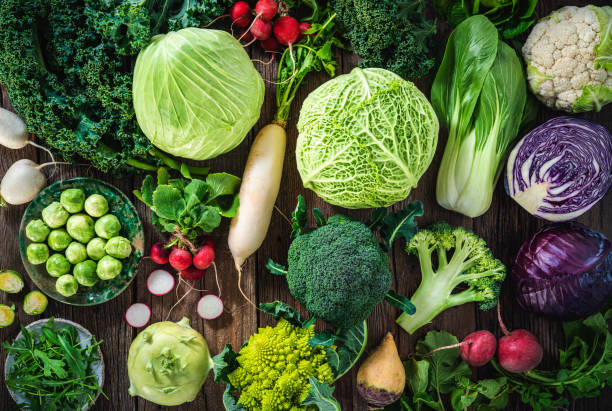Recently, the benefits plant-based diets and vegan foods have become increasingly popular worldwide as people move away from animal products.
Even though external factors (such as social media) might influence how we eat, our choices ultimately depend on us. We must listen to our bodies to maintain a healthy, joyful, and well-balanced lifestyle.
Studies have shown that plant-based eating provides several health and eco-friendly benefits while conventional diets are toxic and questionable.
What are Plant-Based Diets?
A plant-based diet consists primarily of whole foods that are minimally processed. Plant-based eating does not necessarily mean cutting out meat or dairy, but adding more fruits, vegetables, whole grains, beans, nuts, and the like to your meals.
Consuming plants has short- and long-term health benefits, and you do not have to restrict yourself as you do with diet culture.
Key Benefits of Plant-Based Diets

- Decreased risk of chronic diseases
There is strong evidence that a plant diet high in whole, minimally processed foods can decrease the risk of chronic diseases like heart disease, cancer, and type 2 diabetes.
Several studies have shown that plant-based diets reduce LDL cholesterol, blood pressure, and inflammation, all are risk factors for heart disease.
- Boosts the immune system
Unlike other foods, plants contain essential nutrients. Plants contain vitamins, minerals, phytochemicals, and antioxidants that keep your immune system functioning at its best by keeping your cells healthy.
You need plants to help your body fight infections. When you eat a plant-based diet, your immune system is strengthened, preventing germs and microbes from infecting you.
Because a healthy immune system can identify and attack mutations in cells before they progress to cancer, a healthy immune system reduces your risk for cancer.
- Higher energy levels
Have you ever felt sluggish after eating a lot? You can feel more energetic throughout the day by eating plant-forward foods after meals. Your body will thrive if you consume mostly plant-based whole foods.
The body breaks down whole foods efficiently and absorbs and utilizes the nutrients they provide. Your energy levels will be one of the first things you notice.
- A broader palate
Your taste buds will become more accustomed to plants as you increase your plant intake. It will rewire your taste buds.
Research published in Chemical Senses found that repeated exposure to nutritional, less-palatable foods such as broccoli and leafy greens can calm the initial taste of bitterness.
- You’ll look radiant
It’s true that “real beauty comes from within.”. Consuming more plant-based foods can help you to look and feel better.
Polyphenols and antioxidants found in vegetables, fruits, nuts, and seeds work directly on reducing inflammation in the body and, consequently, the skin.
- You’ll reduce food costs
You may be able to save money by eating a plant-forward diet. Meat can be expensive at restaurants—especially if you eat it out often.
If you cut off animal products and eliminate processed foods, you will likely be able to save money month after month if you buy mostly plant-based whole-food ingredients like produce, grains, legumes, nuts, and seeds.
- Improved nutrient intake
The nutrients in plant-based diets are essential for optimal health, including vitamins, minerals, and phytochemicals.
Fiber-rich plant-based diets promote healthy digestion and can combat constipation by promoting healthy digestion.
- Environmental sustainability
Because plant-based diets require fewer resources and emit fewer greenhouse gasses than diets based heavily on animal products, they are more environmentally sustainable.
- Lowers mortality risk
Essentially, this is the benefit of a plant-based diet. Following a whole food plant-based diet lowers your risk of certain diseases and improves your health more effectively, so you’re more likely to live longer.
You can also improve your weight loss and weight management with plant-based diets since they are typically lower in calories and higher in fiber.
- Enhances brain function
Several studies have shown that fruit and vegetables are high in polyphenols, which can slow the progression of neurodegenerative diseases caused by a plant-based diet. It is even possible that these chemicals can reverse cognitive decline.
- Animal welfare
Many people adopt plant-based diets for ethical reasons related to animal welfare because they reduce or eliminate animal products from their diets.
Plant-based diets can provide numerous health benefits, but they must be nutritionally balanced and include all the necessary nutrients to be effective.
- Reduces carbon footprint
A plant-forward diet has a positive effect on the environment, which is one of its biggest advantages. It will reduce your carbon footprint.
Compared to animal foods, plant foods are less environmentally impactful in all areas including land use, water supply, and greenhouse gas emissions.
How Can You Consume a More Plant-Based Diet?

Consider vegan versions of your favorite snacks, such as biscuits and cookies, so you can satisfy your cravings for sugary treats with plant-based treats.
In addition, you should choose recipes that emphasize grains, beans, chickpeas, and lentils, as well as healthy fats, such as olive oil, instead of saturated fats. You will feel fuller for longer if you eat these ingredients and they will nourish your body.
To make the transition to plant-based eating easier, try making your meals. Make your own pasta sauce or curry paste using spices and other ingredients you have in your pantry instead of buying premade sauces.
Making your own will prevent you from consuming animal-derived products, like milk powder and egg whites, that are hidden in pre-made products.
Also, by making your food, you’ll ensure that you don’t eat too much processed food and that you’re consuming whole grains and other whole foods that provide your body with all of the nutrients it needs to stay healthy.
FAQs
Which foods are plant-based?
Everywhere you go, you’ll find plant-based foods. Plant-based foods include everything from grains and nuts to fruit, vegetables, and grains.
Plants are the main source of most unprocessed whole foods. In the case of processed foods, adding milk powder and egg whites makes them no longer plant-based.
Which five foods are plant-based?
Fruits, vegetables, dried pasta, rice, and bread are five of the most popular plant-based foods. A whole-food diet usually involves eating a lot of plant-based foods, which is contrary to popular belief.
The added ingredients in processed foods, such as milk powder and other animal-derived ingredients, may prevent them from being plant-based products, and meat, fish, and dairy products are not plant-based.
Can eggs be considered plant food?
Although eggs are animal-derived products, they can be consumed in small quantities as part of a plant-based diet because it does not reject all animal products.
It is possible to consume animal foods in small amounts on a plant-based diet, but the focus is more on whole plant foods. Moderate egg consumption can fit into this type of diet.
Is bread allowed on plant-based diets?
Since flour and water are used to make bread, it is usually a plant-based product. Bread is generally a plant-based product, except for milk bread, which contains animal-derived ingredients.
It is always a good idea to check the label of anything you buy because processed foods may not be plant-based. Animal products, like milk powder, whey powder, and egg whites, are commonly added to processed foods.
Are peanut butter plant-based?
Yes, they are. As a plant-based product, peanut butter provides protein and healthy fats for those on plant-based diets.
The number of different types of nut butter products available now is staggering, with many of them serving as great substitutes for butter in foods such as smoothies and baked goods.
Is a potato a plant-based food?
Because potatoes are derived entirely from plants, they are a plant-based food. There are many ways to prepare potatoes, including chips, fries, baked potatoes, and mashed potatoes.
Due to the addition of animal-derived ingredients in some of the different ways potatoes are cooked and eaten, they may no longer be plant-based, but potatoes in their natural state are.







